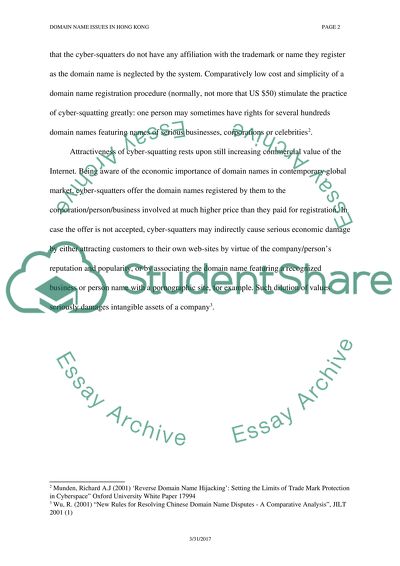Cite this document
(“Intellectual Property: Domain Name Issues in Hong Kong Term Paper”, n.d.)
Intellectual Property: Domain Name Issues in Hong Kong Term Paper. Retrieved from https://studentshare.org/law/1517658-intellectual-property-essay
Intellectual Property: Domain Name Issues in Hong Kong Term Paper. Retrieved from https://studentshare.org/law/1517658-intellectual-property-essay
(Intellectual Property: Domain Name Issues in Hong Kong Term Paper)
Intellectual Property: Domain Name Issues in Hong Kong Term Paper. https://studentshare.org/law/1517658-intellectual-property-essay.
Intellectual Property: Domain Name Issues in Hong Kong Term Paper. https://studentshare.org/law/1517658-intellectual-property-essay.
“Intellectual Property: Domain Name Issues in Hong Kong Term Paper”, n.d. https://studentshare.org/law/1517658-intellectual-property-essay.


